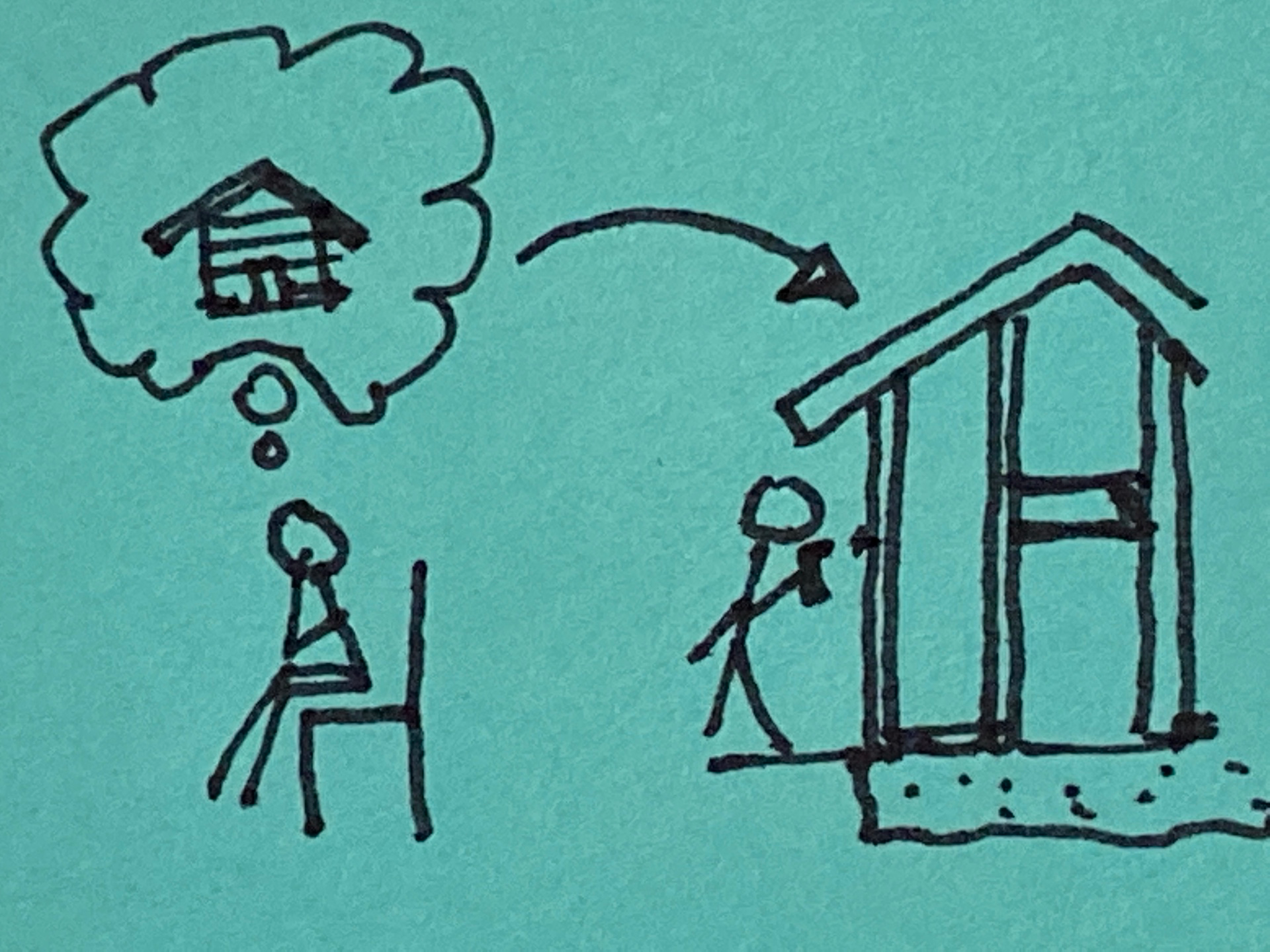Practical Skills
Learn skills for making and maintaining the life support systems of everyday life.

as much as we want to create a better world—World That Works—we still need to be able to keep the one we having running.
Ideas are important, but they won’t help you much if your roof starts leaking.
-
This is really about tying your experience and capabilities to something physically real. Fuller talked about how few jobs in the world actually supported life on the planet. He talked about how we could send all the politicians to the Moon and be fine, but if we sent all the engineers to the Moon, we’d be lost.
-
I think of this as being a call to get some life support skills. Maybe it’s a handyman kind of mentality, but it gets you away from just being a user of things to a fixer or builder of things. In the context of the design process, you need to be able to build working prototypes and test them. Design is not a strictly mental activity.
-
I think, too, that it’s about extending your knowledge from theoretical to practical. It’s one thing to know about clothes, but can you sew? You may know a lot about cars, but can you fix one, even the basics? The more you know, in an embodied sense, about how the world works, the better you’ll be at changing it for the better.
Therefore:
Learn skills for making and maintaining the life support systems of everyday life. Start with simple projects and repairs and build your skills and collection of tools from there.
Make sure you list your practical skills in your Changemaker Profile